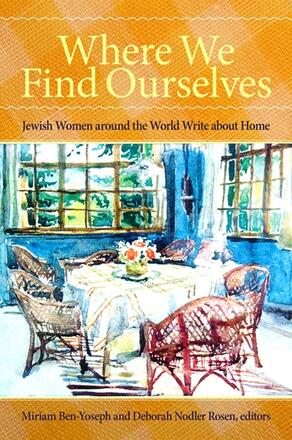
Where We Find Ourselves
Jewish Women around the World Write about Home
Alternative formats available from:
Explores the universal longing for home, illuminated through the essays, poetry, and fiction of forty Jewish women writers from around the world.
Description
In this remarkable collection of essays, stories, and poems, Jewish women writers from around the world offer diverse perspectives on the idea of home. The longing for home is as ancient as the exile from Eden, and for the thirty-nine writers showcased in this anthology, the struggle to find and redefine home has been intensified by history, the Holocaust, and the diverse cultural, political, and religious contexts in which they live and write. Together, they explore the many natures and meanings of home: home as a place one is born to and sometimes forced to leave; home as a place one can journey toward or create; home as an abstract composite of memories, emotions, and rituals. Some of these writers contend with exile and anti-Semitism, others examine the mixed blessings of sheltered childhoods, and all confront memories in which the historical and personal are intertwined. Their range of perspectives and their personal approaches to a universal concern make Where We Find Ourselves a compelling read for students, scholars, and all who seek to understand what it means to be home.
Miriam Ben-Yoseph is Associate Professor at DePaul University's School for New Learning and coeditor (with Mechthild Hart) of Psychological, Political, and Cultural Meanings of Home. Deborah Nodler Rosen is a poet and the editor of RHINO, an award-winning poetry journal based in Evanston, Illinois.
Reviews
"…this thoughtful, humbling and undeniably spirited collection makes a comforting touchstone. " — Publishers Weekly
"Where We Find Ourselves is a moving tapestry of Jewish women's search for home in places as diverse as Chile, Romania, Australia, Israel, and the United States. But what is home? We learn from this book that it is many things. It is memory, loss, poetry, language, an illusion, a sand castle to be consumed by time. But it is also the prosaic comforts that make it possible for women to think and dream—it is books, a laptop, a washing machine, and watercolor landscapes on the wall. Sad and hopeful by turns, the stories and essays in this book will illuminate women's yearning to make their home in a place where the heart can speak. " — Ruth Behar, author of An Island Called Home: Returning to Jewish Cuba